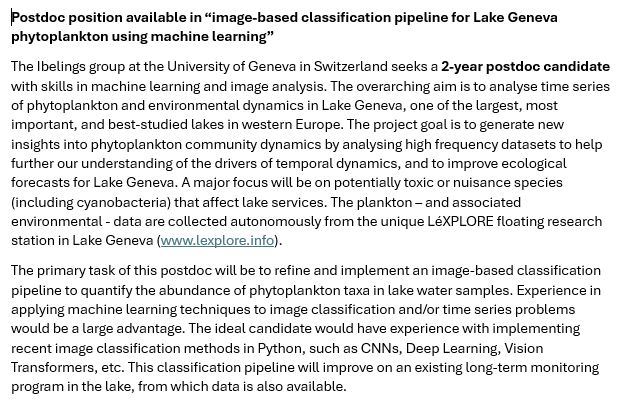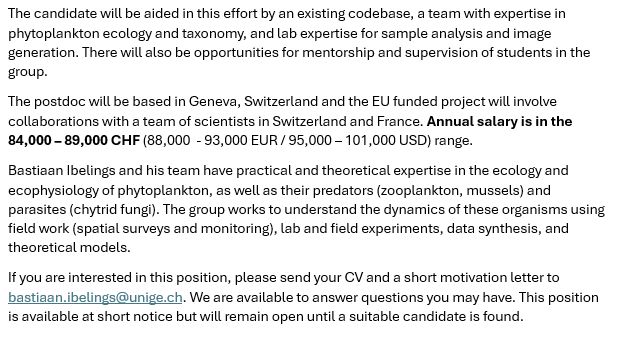We'll focus on using simulations to evaluate how well different experimental designs help achieve your goals.
Please sign up & share! forms.gle/MZTxeQs4UpMr...

We'll focus on using simulations to evaluate how well different experimental designs help achieve your goals.
Please sign up & share! forms.gle/MZTxeQs4UpMr...




![https://en.m.wikipedia.org/wiki/Whole_language
Whole language is a philosophy of reading and a discredited[8] educational method originally developed for teaching literacy in English to young children. The method became a major model for education in the United States, Canada, New Zealand, and the UK in the 1980s and 1990s,[7] despite there being no scientific support for the method's effectiveness.[9] It is based on the premise that learning to read English comes naturally to humans, especially young children, in the same way that learning to speak develops naturally.[10][11][12]](https://cdn.bsky.app/img/feed_thumbnail/plain/did:plc:4g4sdwgumcmp7elol6b2rsc6/bafkreibwpp4gaujrvqv4ozqao2xvczk4djfbd6vbxbmkva2ocuv2bldzdq@jpeg)


Didn't know much about them, but they are bigger than I thought, have large appetites, and can cause big changes to ecosystems.


Didn't know much about them, but they are bigger than I thought, have large appetites, and can cause big changes to ecosystems.
So step 1 is to do full factorial designs (~ 5 x 5 or better) to develop these functions.
(11/n)


So step 1 is to do full factorial designs (~ 5 x 5 or better) to develop these functions.
(11/n)
In these simulations, they are a little better than a 5 x 5 full factorial design. But more importantly, they are basically as good even when using *half* the sample size (not shown).
(10/n)

In these simulations, they are a little better than a 5 x 5 full factorial design. But more importantly, they are basically as good even when using *half* the sample size (not shown).
(10/n)
(9/n)

(9/n)
@raviranjan.bsky.social dug deep into the statistical and engineering literature to review the theory of optimal and sequential design.
These designs look very different from the ones we are used to!
(8/n)

@raviranjan.bsky.social dug deep into the statistical and engineering literature to review the theory of optimal and sequential design.
These designs look very different from the ones we are used to!
(8/n)
(6/n)

(6/n)
Each point here represents a treatment, and point size indicates the number of experimental units at that treatment.
(4/n)

Each point here represents a treatment, and point size indicates the number of experimental units at that treatment.
(4/n)
Here are the kinds of experiments that tend to be most useful in informing models:
(3/n)



Here are the kinds of experiments that tend to be most useful in informing models:
(3/n)
(2/n)
![Abstract: For decades, multiple-driver/stressor research has examined interactions among drivers that will undergo large changes in the future: temperature, pH, nutrients, oxygen, pathogens, and more. However, the most commonly used experimental designs — present-versus-future and ANOVA — fail to contribute to general understanding or predictive power. Linking experimental design to process-based mathematical models would help us predict how ecosystems will behave in novel environmental conditions. We review a range of experimental designs and assess the best experimental path toward a predictive ecology. Full factorial response surface, fractional factorial, quadratic response surface, custom, space-filling, and especially optimal and sequential/adaptive designs can help us achieve more valuable scientific goals. Experiments using these designs are [...] our most promising path toward linking experiments and theory in multiple-driver research and making accurate, useful predictions.](https://cdn.bsky.app/img/feed_thumbnail/plain/did:plc:4g4sdwgumcmp7elol6b2rsc6/bafkreiaxoqfk32ye27navq526qhf5keyvj7wcfwsusc7qlmg2naqxgeo2m@jpeg)
(2/n)
Please share!


Please share!

